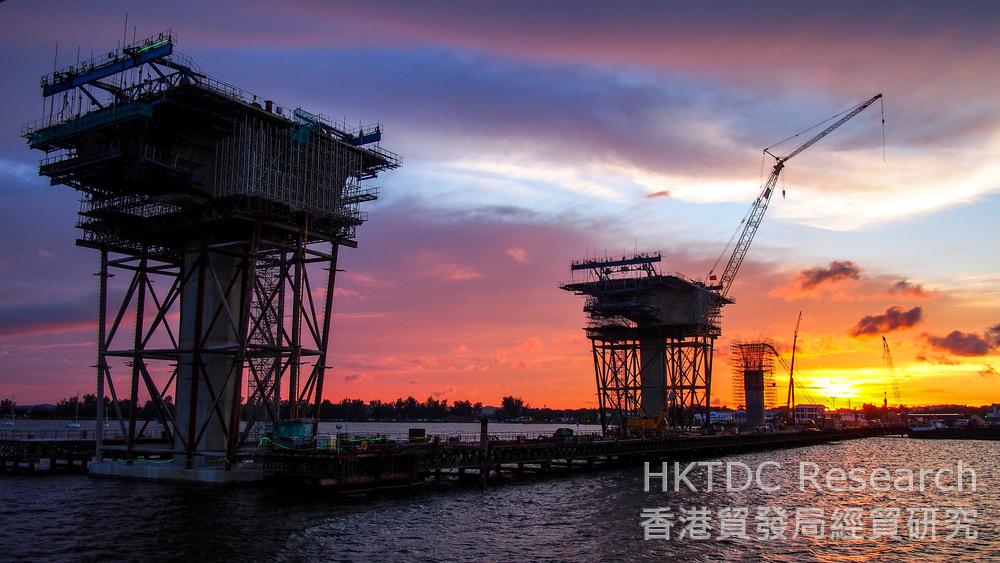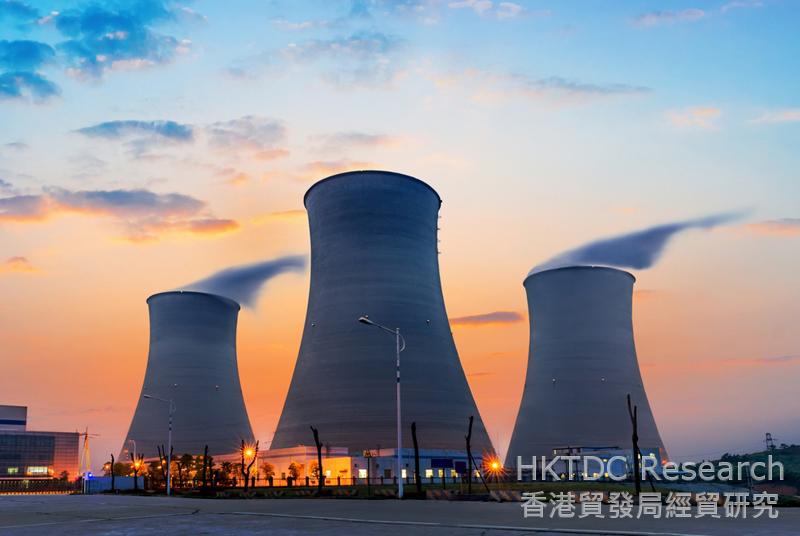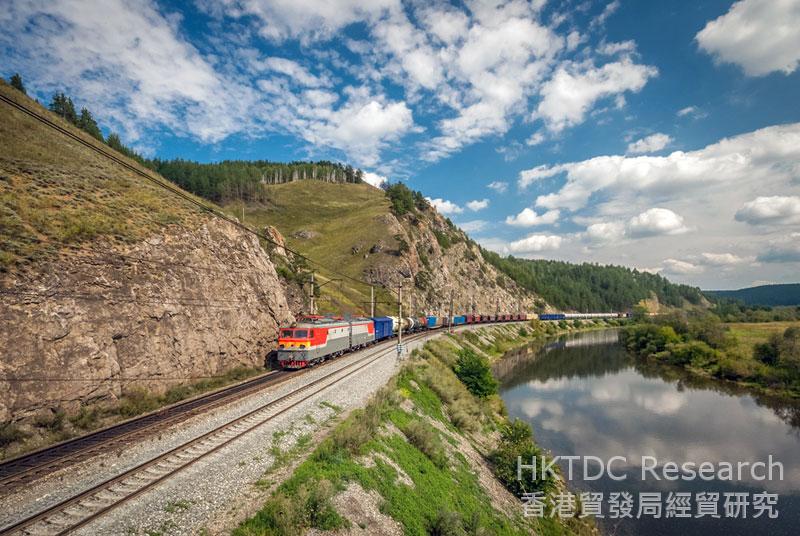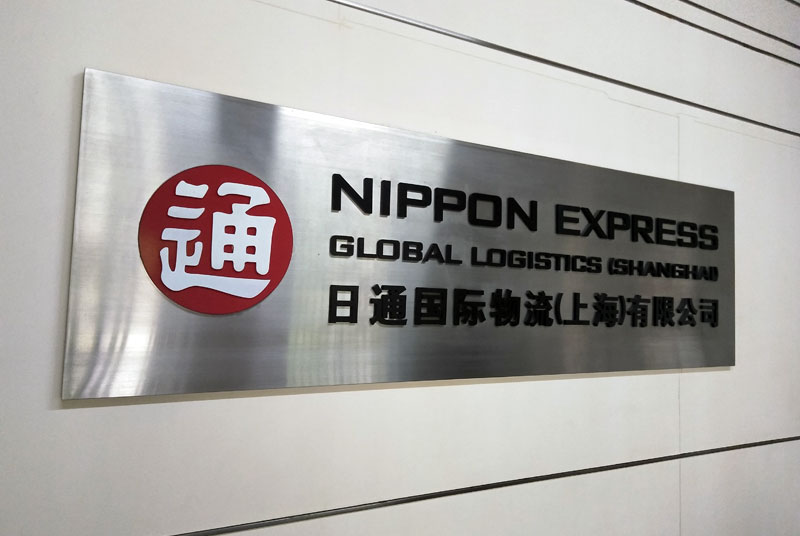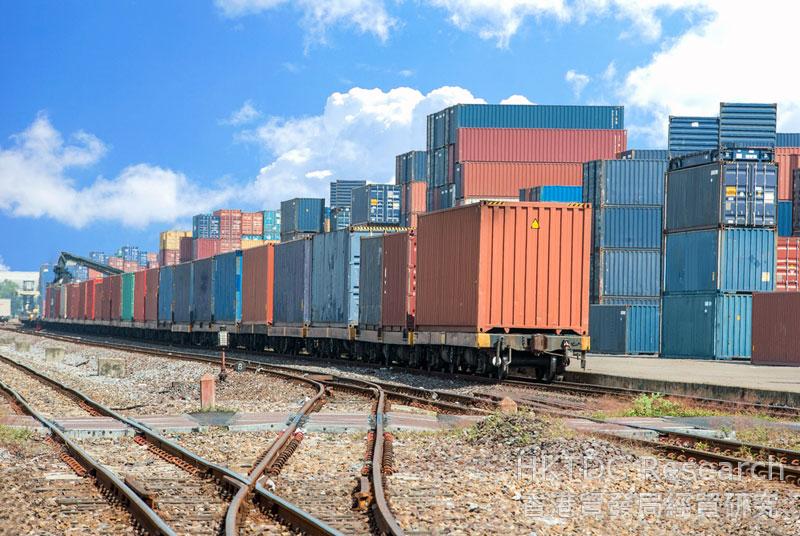A Hong Kong company billed as Asia’s first Artificial Intelligence (AI) incubator is making waves in the global start-up scene. Zeroth.AI runs an early stage funding programme for various start-up sectors including physical fitness. Managing Partner Tak Lo says he would like to see Hong Kong generated AI solutions tackle health issues in Belt and Road Initiative countries, where healthcare infrastructure may be lacking.
Speakers:
Tak Lo, Managing Partner, Zeroth.AI
Keith Ramjan, CEO, fitoneum.com
Related Links:
Hong Kong Trade Development Council
http://www.hktdc.com
HKTDC Belt and Road Portal
http://beltandroad.hktdc.com/en/



US$15 billion China-invested refinery and petrochemical complex seen as having essential part to play as Brunei looks to reinvent itself in the face of stubbornly-stalled international oil prices and its own rapidly-dwindling gas and oil reserves.

The news that work on a 2.7km bridge connecting Bandar Seri Begawan, the Brunei capital, with the neighbouring island of Pulau Muara Besar (PMB) had been completed late last month marked the successful conclusion of the country's first Belt and Road Initiative (BRI) project. It is, however, only one small element of the far wider-reaching China-backed development that will transform the island into one of the region's primary refining and petrochemical hubs.
Once completed, the US$15 billion refinery and petrochemical complex is expected to provide up to 10,000 jobs and play a crucial role in weaning the Brunei economy off its traditional dependence on its crude oil and natural gas exports. Although work on the bridge was led by the China Harbour Engineering Company, a Beijing-headquartered subsidiary of the huge China Communications Construction civil engineering conglomerate, the construction of the plant proper is down to the Hangzhou-based Zhejiang Hengyi Group (Hengyi). Under the terms of its agreement with the Brunei government, the company, one of China's largest suppliers of raw materials for the textile industry, funded the $3.4 billion facility and will be responsible for its day-to-day operations once it comes online late next year.
Another Chinese company, Lanzhou LS Heavy Equipment, a specialist in the provision of petrochemical systems, meanwhile, has been contracted to build a number of the refinery's key production units. These include an aromatics facility with a capacity of 1.5 million tonnes per annum and a 2.2 million TPY (throughput yield) hydrocracking unit.
Overall, the refinery is shaping up to be both China's largest, privately-owned facility outside the mainland and, by far, the most expensive overseas-backed project in Brunei's history. Once operational, it will have the capacity to process 160,000 barrels a day, while also providing feedstock for Hengyi's terephthalic acid production, an intermediate material required to make polyester. It is also hoped that, in time, it will produce a sufficient level of fuel to allow Brunei to successfully compete with Singapore, currently the dominant regional oil hub.
Back in March, in order to finance the project, Hengyi Petrochemicals became the first company to issue BRI corporate bonds – a financial instrument newly approved by the China Securities Regulatory Commission – and successfully raised US$79 million on the Shenzhen Stock Exchange. It is money that the company is clearly going to need.
Earlier this year, it was announced that the second phase of the PMB project will cost some $12 billion. This will see the refinery's capacity expanded to 280,000 barrels a day and will also fund units capable of producing an annual TPY of 1.5 million tonnes of ethylene and two million tonnes of paraxylene.
The scale of the project is a sure indication of its importance to Brunei. Although the country is the second-richest per capita in the ASEAN bloc, after Singapore, low oil prices have seen its economy contract significantly over recent years, while also driving up the level of unemployment. Although, after four years of contraction, the country's economy rallied slightly last year with its GDP growth estimated at 1%, it is still being far outstripped by many of its fellow ASEAN states.
As well as the currently stalled oil prices, the country's oil and gas reverses – long its economic lifeline – are expected to be exhausted within 20 years. In anticipation of this, many of the global petrochemical companies have already cancelled plans for further investment in the country.
The PMB facility, then, is therefore clearly a key initiative and will help the country maximise profits from its dwindling reserves. At the same time, it will also nurture the capability and expertise required to service the increasing number of oil and gas fields coming online across the wider region.
Some institutions, however, are not hanging around to see if Brunei can successfully reboot its economy. Back in 2014, Citibank shuttered its branches and pulled out after 41 years in the country. A year later, HSBC followed its example, again ending its ties to the country. Widely seen at the time as swimming against the tide, the Bank of China opened its first Brunei branch in 2016. Given recent events and current forecasts, that might not have been quite the reckless move it seemed at the time.
According to the International Monetary Fund's recently published Regional Economic Outlook for Asia and the Pacific, the country's economy may expand by up to 8% in 2019, maintaining average growth of 5% for several years thereafter. Significantly, one of the cited reasons for this likely resumed growth was the imminent completion of the PMB facility.
While climbing aboard the BRI bandwagon is clearly in Brunei's interest as the country seeks to reinvent itself in economic terms, Beijing's interest in its 3,900km distant trading partner is far from altruistic. Back in 2014, the two countries pledged to work together on the development of the Brunei-Guangxi Economic Corridor (BGEC) as a means of developing mutual trade, particularly with regard to halal products, tourism and shipping. Over recent years, the BGEC has been subsumed into the overall BRI project.

In terms of its BRI significance, Brunei also has the benefit of being set at the very heart of the Brunei-Indonesia-Malaysia-Philippines East-Asian Growth Area (BIMP-EAGA). Given the surging prosperity of this region, the BRI may allow Brunei to resume its classic role as a preeminent trading hub, boosting China's hopes of facilitating international trade to a scale never before seen.
More prosaically, China and Brunei have both staked a claim to the 370km-long Louisa Reef, one of the disputed areas of the South China Sea. It is now hoped that the close co-operation the two countries currently enjoy will allow them to jointly explore the reef's potential economic benefits, rather than remaining a continuing source of tension between the two.
Marilyn Balcita, Special Correspondent, Bandar Seri Begawan
Editor's picks
Trending articles
As well as boosting Pakistan's power generation, deal establishes China as key nuclear technology exporter.

In perhaps one of the more politically sensitive Belt and Road Initiative (BRI) developments, last month saw China and Pakistan agree terms on the installation of an 878-km power transmission line. Once in place, this will link Lahore with southeastern Matiari, a hub city for the electricity generated in many of the China-backed power plants already operational within the China-Pakistan Economic Corridor, the massive infrastructure redevelopment and energy generation programme at the heart of Pakistan's bid to address its acute logistical problems and its vast power undersupply, as well as the BRI, China's own hugely-ambitious infrastructure and trade facilitation programme.
While – aside from a few environmental concerns and suggestions that China's largesse represents a form of financial colonisation – the developments have largely found approval within Pakistan, they have become something a flashpoint with neighbouring India. The relationship between the two countries has long been fraught, with distrust and recriminations dating back to well before 1947, when they emerged as independent states amid the gradual dismantling of the British Empire.
Now, in addition to several territorial issues, India – one of the few major economies not to embrace the benefits of the BRI – is known to be unhappy that China is effectively wooing a number of countries, such as Pakistan and Nepal, that it sees as rightly within its own sphere of influence. Perhaps most gallingly, China is seen as helping Pakistan further develop its nuclear-power sector, a hugely sensitive issue given the long-term nuclear-weapons standoff between the two South Asian countries.
While this latest development does not relate to Pakistan's rapidly expanding nuclear-power sector, with the electricity set to be transmitted via the new power transmission line actually sourced from several China-backed, coal-fired facilities in the west of the country, that is not to say that China's isn't heavily committed to helping Pakistan boost its nuclear-power generation capacity. Indeed, much of the basis of the present and continuing China-Pakistan economic co-operation revolves around power generation – both conventional and nuclear – as the Pakistan government looks to solve its longstanding energy-generation shortfall.
As recently as 2013, with the country's demand topping 15,000 MW, Pakistan only had a total generational capacity of 11,000 MW. With the gap between demand and supply only set to grow, the country has since set about accelerating the expansion of its nuclear-power programme, with China acting as financial backer, technical consultant and lead contractor. Ultimately, it is hoped that this tactical alliance between the two countries will result in Pakistan having a domestic power generation capacity of 40,000 MW by 2050.
That is not to say that China sponsored Pakistan's introduction into the still relatively small number of nations with nuclear-power facilities. Predating China's initial involvement by more than 20 years, 1971 saw Toronto-headquartered GE Canada install and then manage KANUPP1, the Karachi-based facility that produced Pakistan's first nuclear-derived electricity. Although Canada cut all ties to the plant in 1976 after Pakistan refused to sign the Non-Proliferation of Nuclear Weapons Treaty, the plant continued in service until 2002. Following a four-year upgrade, it resumed operation and continues to produce electricity, albeit at a reduced level.
China's involvement with the country's nuclear programme began in August 1993, when the two countries jointly developed the Chashma Nuclear Power Complex in Punjab, Pakistan's most populous province. Marking the first time China had exported its nuclear technology, the installation initially comprised two 300 MW generating units and two subsequent 340 MW units, all of which are now connected to the national grid.
In 2013, China and Pakistan agreed to add a fifth unit to the Chashma facility, which is due to go online in 2020. That same year, construction also began on two state-of-the-art 1,000 MW+ reactors – KANUPP-2 (K-2) and KANUPP-3 (K-3) – close to the original reactor site, with both due to be operational by 2021. Acting under the auspices of the International Atomic Agency, the sector's global regulator, three of the mainland's leading nuclear-power companies – the China General Nuclear Power Group, the China National Nuclear Corporation (CNNC) and the China Atomic Energy Authority – co-operated in the development of the two new facilities, with CNNC covering at least US$6.5 billion of the costs of the $10 billion project through a series of low-cost loans.
At the core of the two new facilities is the third generation HPR1000 Hualong One reactor, the model at the forefront of China's bid to export its nuclear technology. One such model is currently undergoing acceptance tests in the UK, while another has been earmarked as the centrepiece for Argentina's fifth nuclear facility with work on the project scheduled to begin in 2020. In the meantime, as well as helping Pakistan meet the shortfall in its electricity supply, while tying the country into wider goals of the BRI, the Punjab nuclear facility is also acting as China's calling card as it looks to establish itself as a world leader in safe and cost-effective nuclear-power generation.
Geoff de Freitas, Special Correspondent, Lahore
Editor's picks
Trending articles
By Deloitte
China-proposed Belt and Road Initiative (BRI), which has been a large part of the investment landscape across a swathe of the world for four years, will become increasingly important. This paper summarises Deloitte’s key BRI insights for 2018, and also explains how industry players can best position themselves to seize the ever-widening range of BRI investment opportunities...
Winners and global resonance
BRI 2.0
In May 2017 at the BRI Forum in Beijing, President Xi told attendees that the vision underpinning BRI “is becoming a reality and bearing rich fruit,” adding that “a solid first step has been taken.”
Naturally some regions and industries have done better than others. Southeast Asia and South Asia remain key beneficiaries and, our research shows, remain the most favored by SOEs (figure 9). For the former, that is partly due to proximity to China and a higher state of development, and partly due to the demand for better infrastructure. For the latter, the size of their populations and vast market potential are important draw cards.
Europe is also popular, as are Russia and Central Asia. We expect that will remain the case over the coming years, although given that BRI’s sustainability is aligned with China’s economic and political interests, it is likely that the initiative’s priority will continue to be areas that are geographically close to China.
We saw earlier why infrastructure attracted more funding than other sectors, with China’s SOEs the key winners. As BRI’s global ecosystem builds, it will encompass investments in manufacturing and trade, as well as softer investments in tourism and culture. That will create opportunities for MNCs with the technology, skills and connections that Chinese firms, whether SOEs or POEs, often lack.
In addition, we expect increasing numbers of Chinese POEs, many of which view BRI as a venue for SOEs, will become more active in areas such as M&A, which is what Beijing wants. Although some POEs are cautious, others have committed.
Bigger pool of opportunity
This goes to the heart of BRI’s phase 2, which is widening the pool of opportunity. And although many MNCs have yet to reap benefits, some have. Take ABB, for example. The Swiss-based firm has been involved in dozens of EPC deals undertaken by Chinese companies, for which it aims to become “the partner of choice.” In 2016 alone, it helped 400 Chinese firms to resolve inter-country differences in design and industrial standards.
Caterpillar says it regards BRI as a long-term opportunity. For its part, GE recorded orders worth $2.3 billion in 2016, most under BRI projects, up from just $400 million in 2014; over the next year or so, GE will bid for business worth another $7 billion of business. Honeywell and Siemens have also benefited from their technological offerings, while Citibank and Zurich are among others getting more deeply involved.
We believe phase 2 will bring greater global resonance, and that MNCs that position themselves strategically now stand a good chance of benefiting.
Phase 2 is being driven by the ready funding provided by China―and increasingly by others. In May 2017, President Xi announced a further $124 billion for BRI, including $14.5 billion for the Silk Road Fund, and special lending schemes for the China Development Bank and the Export-Import Bank of China, worth around $36 billion and $19 billion, respectively. He also called on financial bodies to establish a BRI fund worth $43 billion.
The involvement of the Asian Infrastructure Investment Bank (AIIB)―which is expanding its influence and in June welcomed its 80th member―in BRI projects will prove increasingly important. As it builds credibility and experience, and enjoys the backing of China and dozens of other governments, it should have little trouble raising funds on global capital markets. This internationalisation of the AIIB should also increase the sensitivity of sponsoring governments, not least China, to perceptions of political influence in BRI.
In short, BRI is benefiting from initiatives that have increased the amount of financing, its sourcing (including from developed nations such as the United Kingdom and Germany) as well as the cofunding of projects between, say, the AIIB and other multilateral organisations.
MNC Opportunities
Not only has MNCs’ opportunity to get involved in BRI never been better, it is likely to keep improving. Why? Not least because Beijing wants to boost BRI’s inclusiveness. China’s leaders describe BRI as an initiative, not a strategy. While that might seem a low-value distinction, it informs an important difference: It means Beijing views BRI as a global program that was initiated by China, and not as a Chinese project.
China stands by its assertion that BRI is for all, and needs to show it means that by keeping BRI open. That will not hold up if MNCs can participate in only a showcase fashion.
Phase 2’s very nature will also afford MNCs greater opportunity, because many enjoy competitive advantages over Chinese firms in areas such as manufacturing, trading and tourism.
There are other pointers too. Firstly, more funding will come from outside China, including from monetary financial institutions (MFIs) such as the World Bank and the ADB; this will bring with it increased transparency as well as rules with which MNCs are more familiar.
Secondly, the AIIB recently brought its decision making more in line with that of the World Bank and the ADB, and said it would take account of issues such as the environment; this should have a similar effect given that MNCs have more experience in meeting such requirements.
And thirdly, richer countries are benefiting from BRI, and are better able to ensure that projects are of the highest standard, and that the companies carrying out such work are the best available. Again, that ought to benefit non-Chinese MNCs...
Conclusion: Three key insights and predictions
Our experience with BRI projects over the years has allowed us to develop three key insights and predictions, all of which have appeared in this report in some form.
Firstly, BRI is much more than a Chinese-funded infrastructure project. And although SOEs have undertaken the bulk of BRI projects to date, we expect many more POEs and MNCs will become involved in the near future. Linked to this, many projects are underpinned by strong bilateral relationships between China and the countries concerned, which makes these investments more secure than outsiders might imagine. And while most participants are developing countries, it is also true that developed nations are increasingly involved.
Secondly, BRI’s opportunities will become increasingly plentiful, but a longer timeframe is needed when measuring returns―10–15 years rather than 3–5. And although many projects involve higher risks than conventional investments, it is important to keep those risks in perspective and deal with them dynamically.
Thirdly, BRI is a collaborative ecosystem that to date has focused on energy and infrastructure, but that over the next five years and beyond will evolve to concentrate on trade, manufacturing, the Internet, tourism and other aspects.
It is worth saying, too, that Beijing’s view of BRI is not well understood abroad: It sees this initiative as comprising a different interpretation of globalisation, one that is about optimising returns, not about maximising them in solely financial or commercial terms. This is encapsulated in the principle underpinning BRI: 共商共建共享, which translates as, “Trade together, build together, enjoy together.”
And so, while BRI is in part an initiative designed to push China’s economy to the next stage, to Beijing it is more too: a way to create a more equitable global economic system. MNCs that manage to position themselves well should find BRI a striking, multiyear opportunity.
Please click to read full report.
Editor's picks
Trending articles
China’s Belt and Road and Guangdong-Hong Kong-Macau Bay Area initiatives enhance Alberta’s international diversification push, says the Canadian province’s trade minister. Speaking at a Hong Kong reception for jewellery firm Korite International, Deron Bilous says Alberta sectors like technology, energy, forestry, tourism – as well as gems and jewellery – regard China as a priority, while Hong Kong is an established hub and gateway for China’s big initiatives.
Speaker:
Deron Bilous, Alberta Minister of Economic Development and Trade
Related Links:
Hong Kong Trade Development Council
http://www.hktdc.com
HKTDC Belt and Road Portal
http://beltandroad.hktdc.com/en/



Hong Kong has been chosen as the Asian hub for Canadian rare resource and jewellery company Korite International Inc. The Alberta-based company controls nearly all of the world’s resources of ancient Ammonite fossils and the jewellery made from them, Ammolite. Korite’s CEO Martin Bunting said Hong Kong’s world-beating trade shows and location offer huge regional potential, with connections to the Belt and Road and Guangdong-Hong Kong-Macau Bay Area initiatives.
Speaker:
Martin Bunting, CEO, Korite International Inc
Related Links:
Hong Kong Trade Development Council
http://www.hktdc.com
HKTDC Belt and Road Portal
http://beltandroad.hktdc.com/en/



Blackpanda, a Hong Kong special risks consultancy, draws on the image of the panda to show its community development credentials. But it also aims to show “risk” as an important aspect of the Belt and Road Initiative, with cyber security a major challenge, says CEO Gene Yu. Hong Kong’s connector role is all-important to clients as the firm opens markets in Southeast Asia.
Speaker:
Gene Yu, Co-founder, CEO, Blackpanda
Related Links:
Hong Kong Trade Development Council
http://www.hktdc.com
HKTDC Belt and Road Portal
http://beltandroad.hktdc.com/en/



Hong Kong-based special risks consultancy firm Blackpanda has developed methods to reduce concerns to investors and project developers under the Belt and Road Initiative. Specialising in physical security, intelligence, community relations, cyber security and insurance, the firm has done military-style exercises to measure risks and CEO Gene Yu says Hong Kong’s safe environment and financial stature are matched by its alignment with the Belt and Road.
Speaker:
Gene Yu, Co-founder and CEO, Blackpanda
Related Links:
Hong Kong Trade Development Council
http://www.hktdc.com
HKTDC Belt and Road Portal
http://beltandroad.hktdc.com/en/



China is actively promoting economic and trade co-operation with countries and regions along the Belt and Road routes. This includes expansion of the China-Europe Railway Express (CR Express) network running between the Chinese mainland and Europe, providing express rail freight as an alternative to sea and air transport.
Since the 2011 launch of the CR Express service from Chongqing in western China to Duisburg in Germany, freight volume has risen considerably. Not only are western region Chinese manufacturers making greater use of CR Express trains to replace Europe-bound sea freight, coastal cities in the eastern region are also launching railway services, one after another.
Against this backdrop, logistics companies have begun to integrate rail freight services with sea and air networks in order to provide a more comprehensive international logistics service to clients. For example, Nippon Express (Shanghai) Co Ltd[1], a Japanese-funded company located in the Waigaoqiao Free Trade Zone, plans to provide rail freight services to Europe through the CR Express lines running from China’s coastal and inland cities. This is intended to support Nippon Express clients in capturing trade development opportunities between China and Europe, as well as the BRI. (For further details, see Leveraging CR Express to Tap “Belt and Road” Markets.)

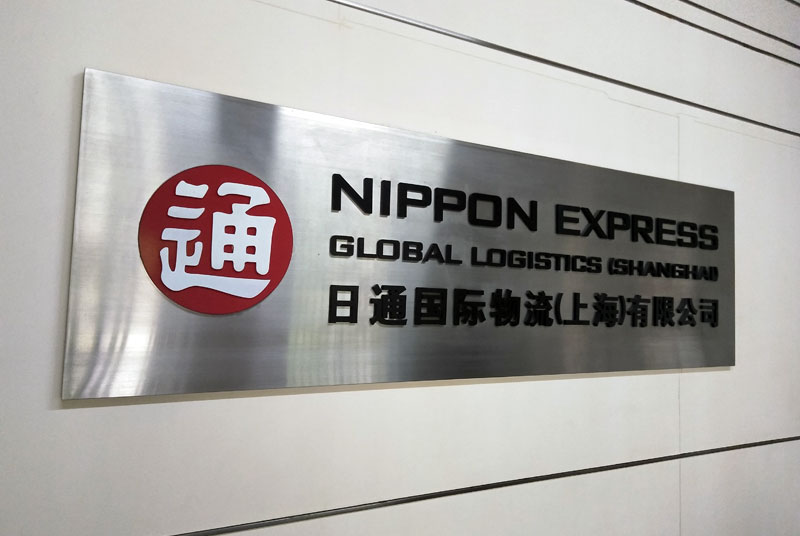
Nippon Express (Shanghai)’s parent company is Nippon Express Group (NE Group), a global logistics company, providing comprehensive logistics and supply chain management and related services. It serves the Chinese market through international transport networks in the Yangtze River Delta (YRD) and Hong Kong.
According to the NE Group, it is necessary to keep up to date with mainland economic development and trade policies. It has, therefore, actively set up logistics operating points in various bonded areas and pilot free trade zones to provide clients with faster and more convenient services through customs facilitation. The group also uses Hong Kong facilities to support the mainland network to optimise logistics. It relies on Hong Kong to handle financial dealings and investment, as well as manage its information technology for the East Asia region.
Seizing opportunities presented by the rapid development of rail freight through the CR Express network in recent years, NE Group is targeting higher-value goods from the coastal and western regions of China to Europe. As freight trains between the mainland and Asia as well as Europe are on the increase, the group plans to launch a rail freight service between Japan and Europe via the mainland in 2018, providing Japanese clients with an alternative to sea and air.
Under the current trend of industrial transformation and upgrade on the mainland, many high-tech or high-value-added enterprises have become more demanding of logistics services. For example, most electronics manufacturers require logistics providers to have specialised logistics facilities and valuables storage systems for handling higher-value goods, enabling reduced shipping time. In view of this, some logistics service providers, such as NE Group, have not only upgraded logistics facilities to meet client requirements, but have also integrated sea and air freight with the CR Express network. This takes advantage of the relatively fast service and convenient customs clearance offered by the CR Express.
At present, areas served by the CR Express network have already been expanded from the mainland’s western region to the YRD and other coastal cities. CR Express is less costly than airfreight. While not as cheap as sea transport to Europe, it is faster and therefore suitable for higher added-value and shorter life span goods. Suitable items include machinery, high-value electronics, and fast-moving consumer goods where a short delivery lead time is more important than transport costs. Undoubtedly, the CR Express would provide an additional cost-effective option to enterprises with time sensitive shipping needs.
Capitalising on China’s promotion of Belt and Road development, the NE Group has taken the lead among Japanese freight agencies, providing logistics solutions to Europe through the CR Express network since 2016. Its service area has already expanded to cover 14 mainland cities and six European cities. With an intermodal rail freight service from Shanghai or Shenzhen to Europe, it has also integrated with European transport networks to expand coverage.
NE Group has recently launched sea-rail and air-rail multi-modal freight services in Japan, Taiwan and Korea, with the CR Express network at the core. A brand-new logistics service has also been introduced, where the fastest freight transport from Japan to Germany could be completed in 23 days.
Note: For details of the company interviews conducted jointly by HKTDC Research and the Shanghai Municipal Commission of Commerce, please refer to other articles in the research series on Shanghai-Hong Kong Co-operation in Capturing Belt and Road Opportunities.
[1] Nippon Express Shanghai was interviewed jointly by HKTDC Research and the Shanghai Municipal Commission of Commerce in Q1 2018.
Editor's picks
Trending articles
Modern logistics aims at providing efficient freight services and comprehensive solutions by charting the best freight course in the light of all factors to meet the needs of clients from various industries. In respect of air freight, not only should the transportation speed and shipping cost be taken into consideration, but steps must also be taken to ensure timely delivery to client specified destinations. A customised professional air freight logistics solution is particularly important to enterprises engaged in high-value and high-tech operations with a short production process and delivery cycle.

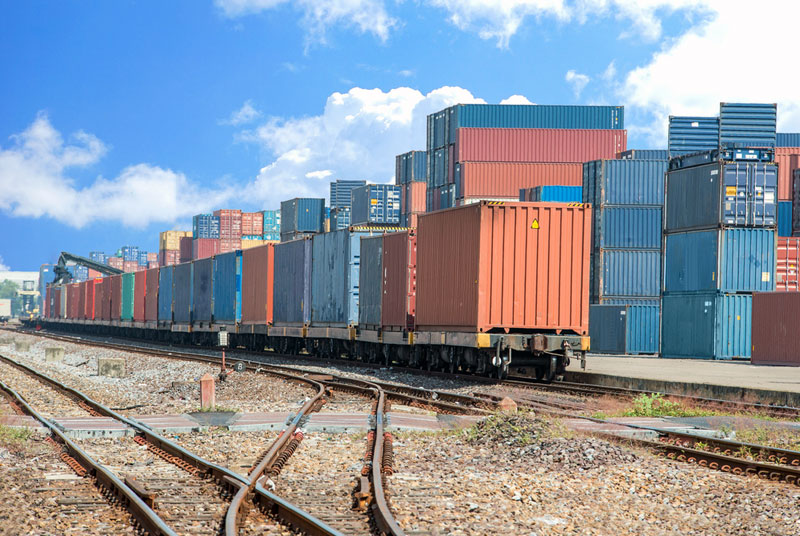
In an interview[1] with Best Loader Logistics (Shanghai) Co Ltd, its representative pointed out that logistics service providers should fully understand the specific requirements of their clients, including the cargo types, trading terms, senders’ preparation of goods and related documentation, as well as the required port arrival time. A comparison can then be made with the pricing and freight schedules of different contractors (such as shipping companies, airlines, truck companies or rail operators), as well as the port service and customs clearance process of customs declaration, inspection and quarantine at the destinations. Only upon consolidation of all factors can the best logistics solutions and contingency budgeting be drawn up for the clients to provide precise, safe, timely and cost-effective freight logistics services.
Businesses operating in the Yangtze River Delta, Pearl River Delta and other regions may come from different positions on the supply chain, and their import and export operation may involve different locations, giving rise to different logistics requirements. When logistics service providers on the mainland are to customise the freight routes and transportation modes for their clients on the basis of cost-effectiveness, they should take into account various factors. These include the characteristics of different product types, such as dangerous goods and temperature-sensitive goods, the facilitation measures of different ports, their customs clearance speed for different product types, and the convenience of local logistics and distribution services for the mainland and international markets. If service providers lacking a comprehensive network only rely on a single port for completing the customs clearance process, they can hardly provide efficient and comprehensive logistics services for a wide range of businesses on the mainland.
Take Best Loader Logistics as an example. With its headquarters set up in Hong Kong, the company is supported by a global flight information system and a comprehensive network of airlines in contract. It has operating bases in multiple locations, including Shanghai, Guangzhou, Shenzhen and Hong Kong to offer freight services by air, sea, rail and multimodal transport facilities.
Apart from providing round-the-clock global air freight import and export services with customs clearance support at Pudong International Airport in Shanghai, it also taps into the markets of Southeast Asia, India, the Middle East and other regions along the Belt and Road routes through its network in South China. It has also set up an air freight service platform for its two international trading routes serving the mainland and Hong Kong. Warehousing and supporting services are also provided in multiple areas to satisfy clients’ day-to-day logistics needs, such as the use of integrated or exclusive freight loads and the handling of specific goods that are oversize/overweight.
Note: For details of the company interviews conducted jointly by HKTDC Research and the Shanghai Municipal Commission of Commerce, please refer to other articles in the research series on Shanghai-Hong Kong Co-operation in Capturing Belt and Road Opportunities.
[1] Best Loader Logistics was interviewed jointly by HKTDC Research and the Shanghai Municipal Commission of Commerce in Q1 2018.
 458 Views
458 Views